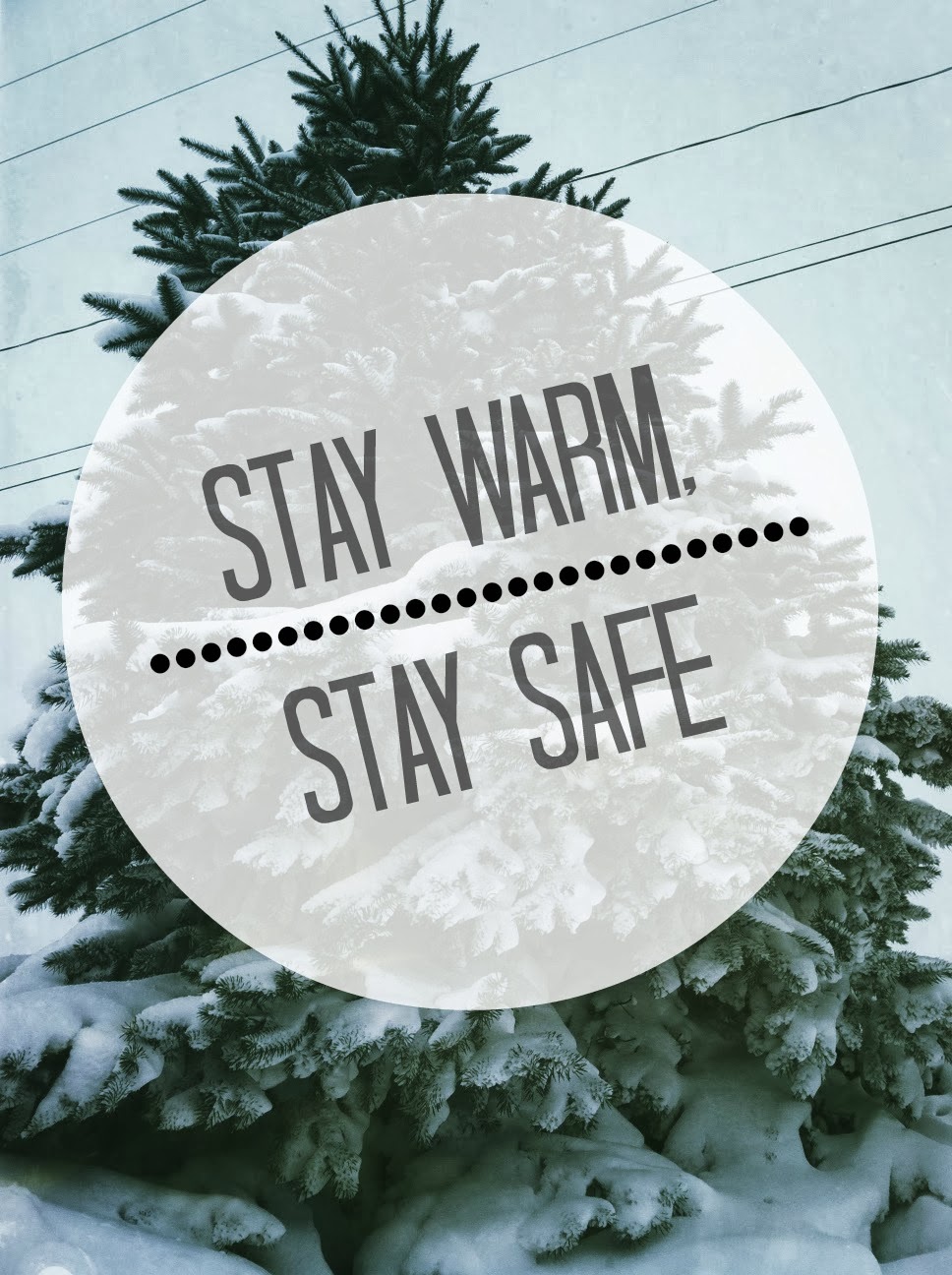Stay warm, stay safe!
We wanted to take a quick moment to share a resource that we have found especially helpful: Ready.gov.
They offer helpful tips on staying warm, staying safe and what you should have packed in your car during these low temperatures.
- Stay indoors during the storm.
- Walk carefully on snowy, icy, walkways.
- Avoid overexertion when shoveling snow. Overexertion can bring on a heart attack—a major cause of death in the winter. If you must shovel snow, stretch before going outside.
- Keep dry. Change wet clothing frequently to prevent a loss of body heat. Wet clothing loses all of its insulating value and transmits heat rapidly.
- Watch for signs of frostbite. These include loss of feeling and white or pale appearance in extremities such as fingers, toes, ear lobes, and the tip of the nose. If symptoms are detected, get medical help immediately.
- Watch for signs of hypothermia. These include uncontrollable shivering, memory loss, disorientation, incoherence, slurred speech, drowsiness, and apparent exhaustion. If symptoms of hypothermia are detected, get the victim to a warm location, remove wet clothing, warm the center of the body first and give warm, non-alcoholic beverages if the victim is conscious. Get medical help as soon as possible.
- Drive only if it is absolutely necessary. If you must drive: travel in the day; don’t travel alone; keep others informed of your schedule; stay on main roads and avoid back road shortcuts.
- Let someone know your destination, your route, and when you expect to arrive. If your car gets stuck along the way, help can be sent along your predetermined route.
- If the pipes freeze, remove any insulation or layers of newspapers and wrap pipes in rags. Completely open all faucets and pour hot water over the pipes, starting where they were most exposed to the cold (or where the cold was most likely to penetrate).
- Maintain ventilation when using kerosene heaters to avoid build-up of toxic fumes. Refuel kerosene heaters outside and keep them at least three feet from flammable objects.
- Conserve fuel, if necessary, by keeping your residence cooler than normal. Temporarily close off heat to some rooms.
- If you will be going away during cold weather, leave the heat on in your home, set to a temperature no lower than 55ºF.
Enjoy these snowy pictures Emily took right outside of the office! We couldn't help ourselves. It might be cold, but it's gorgeous!
Find out more tips and tricks here! Stay warm and safe!
Until next time,
The Warmer Team







Comments
Post a Comment